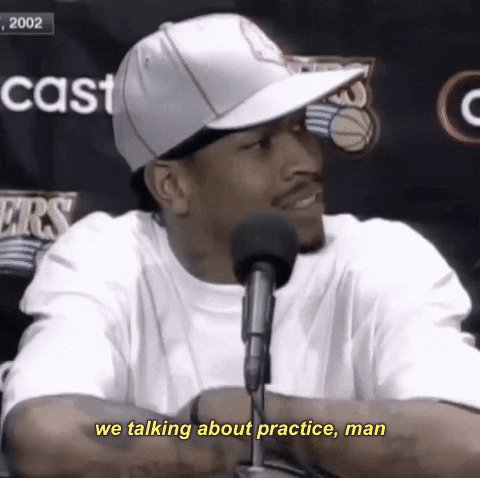How to Learn 10x Faster according to Science
The 9-step science-based protocol to learn better and faster
🎣 Ok, this might be the biggest clickbait title I have ever written.
Truth is - it is not clickbait.
There’s an evidence-based method that can be used to learn things 10x faster:
The “gap effect”.
Any time we are learning something, it helps to have random pauses of 10 seconds where you just STOP and do NOTHING.
Studies have shown that if we pause every so often for 10 seconds and do nothing during the pause, neurons in the hippocampus and cortex - areas of the brain involved in learning and memory - engage in patterns of neural activity similar to the actual learning activity1.
The only difference is that they do it 10x faster, meaning we get 10x neural repetitions during the pauses.
Ok, what does it mean?
The areas of the brain that are active while we study something (e.g. maths, music, a new language, etc.) don’t stop during these 10-second pauses.
Instead, they replay the patterns of activity occurred during the learning tasks (e.g. learning a music scale), but the “replay” happens 10x faster than the original learning.
We are essentially getting practice without practicing.

And how often should these pauses happen?
Approximately 30 pauses for every hour of focused learning activity, randomly distributed.
I discovered this method through Stanford Professor and Neuroscientist Andrew Huberman.
I’m a huge fan of his podcast, which is the world’s #1 health podcast and one of the most appreciated in science and education.
In reality, the “gap effect” is just one part of a comprehensive 9-step learning protocol Huberman calls the “Neuroplasticity Super Protocol”.
Americans love a cool name - they can’t help it.
But the science behind is solid.
This protocol can help anyone that wants to learn anything more efficiently.
The steps are the following:
1. Get Alert 🫁
We must be alert (i.e. awake, observant, vigilant) to trigger neuroplasticity.
Neuroplasticity is the brain's ability to change and adapt due to experience.
It refers to the brain's ability to change, reorganize, or grow neural networks.
This can involve functional changes due to brain damage or structural changes due to learning.
A simple step to become more alert is:
Take 25-30 deep breaths (inhales through the nose, exhales through the mouth).
Then exhale your air and hold your breath with lungs empty for 15-60 seconds.
Then inhale once and hold your breath. Don’t force the breath hold - start to breathe normally immediately once we feel the impulse to breathe.
2. Get Focused 🔕
To be mentally focused (and ready for learning) we must be visually focused.
To increase the level of focus on the task we are about to do, stare at a point on a wall for 30-60 seconds before starting.
Blinking is fine, but we should try not to have any other thoughts and just try and focus on that one point until time is up.
Mental focus is not a state, but rather an active process.
We should expect to flicker on and off, especially at the start of the learning activity.
3. Get Repetitions 🔁
Perform the maximum number of repetitions in a given learning session.
In some types of learnings, “repetitions” are actual repeats of something (e.g. learning scales of music, or a ballet choreography).
For other types of learnings, we will repeat the same process (e.g. reading or doing math problems).
4. Expect & Embrace Errors 👐
During a learning session, errors are fundamental to increase the activation of the neural circuits that increase alertness.
And it makes total sense: our brain takes notice when we make errors, and not when we perform something correctly.
5. Gap Effects ⏸️
Mentioned above, but repeating helps 😉
When learning, take 10-second pauses to do nothing.
Studies show these breaks activate the hippocampus and cortex, mimicking learning activity at 10x speed, helping memory and learning efficiency.
6. Intermittent (and random) Reward 🍪
This is what casinos do to keep people gambling.
How often we should reward ourselves (or others) to keep motivation high?
Make it random and intermittent.
That’s because predictable rewards lose their motivational impact quickly.
7. Limited Learning Sessions ⏰
Research shows that ~90 minutes is the longest period we can expect to maintain intense focus and effort toward learning.
Besides, we should distance intense learning sessions 2-3 (or more) hours apart.
Most people can’t do more than 270 minutes of intense learning sessions per day.
8. NSDR (Non-Sleep Deep Rest)
Studies show that NSDR can enhance the rate and depth of learning.
Within the first 1-4 hours of completing a learning session, we should try incorporating a short NSDR protocol (e.g meditation, or take a 20-minute nap).
9. Long Deep Sleep 😴
The actual rewiring of neural circuits underlying learning occurs during sleep and NSDR (Non-Sleep Deep Rest).
The learning session is the “trigger” for the possibility that we might learn, but sleep and NSDR are when the actual learning occurs.
And this is why a book like “Why We Sleep” by Matthew Walker is a #1 bestseller.
Oh, and Matthew Walker was just a guest in Huberman’s podcast (link).
For great learning, get as focused as you can, but then relax as deeply as you can.
This could be the perfect summary of this whole learning protocol.
Specifically, Andrew Huberman says we don't have to follow every step in every learning session. However, three steps are non-negotiable:
1. Get Alert 🫁
2. Get Focused 🔕
9. Long Deep Sleep 😴
🧱👀 I personally tried the breathing technique in #1 and the “wall stare” (#2 of the protocol), and they worked great.
For the “wall stare” it was hard in the beginning but after a while I got used to it and it improved my focus immensely - almost like I was able to translate the focus from one thing (the point on the wall) to the other (the learning bit).
For #9 😴 , if you read my first newsletter release, you know I will have to wait a bit before returning to a good night’s sleep.
See you next Sunday 🗓️
Thanks,
Giacomo
P.S. Did you expect to receive today Part 2 of this series? ⬇️
Too easy 😎








Awesome stuff!
I’m going to feature this in Life’s Leadership Lessons (13k+ subs)
Love it.
www.TheBestLeadershipNewsletter.com
Does this apply to learning physical skills as well? Like painting or pottery?